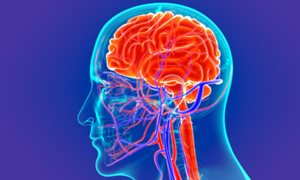 In BMJ Quality & Safety Roel Boumans and colleagues from the department of Geriatrics showed that social robots may effectively and acceptably assist healthcare professionals by interviewing older adults on their perceived health status.
In BMJ Quality & Safety Roel Boumans and colleagues from the department of Geriatrics showed that social robots may effectively and acceptably assist healthcare professionals by interviewing older adults on their perceived health status.
Healthcare professionals are confronted with an increased demand for assessments of important health status measures, such as Patient-Reported Outcome Measurements (PROMs), and the time this requires. At the same time social robots are increasingly being used to interview persons. Roel Boumans, Marcel Olde Rikkert and colleagues from the department of Geriatrics report on the first successfully conducted a study in which a social robot administered PROM questionnaires to older persons. Three questionnaires were administered with a total of 52 questions to 42 community-dwelling older adults (mean age: 77.1 years, 45% female). The same questionnaire was administered by a nurse in a second session with two weeks difference between both sessions. Remarkably, the mean robot interview duration was not significantly longer than the nurse interviews. Moreover, the acquired healthcare data showed good agreement between the three questionnaires on frailty, well-being and resilience. The robot autonomously completed 93% of the interviews and the older persons were positive on the interaction with the robot. Therefore this study paved an important pathway to more routine use of social robots in clinical practice of elderly care, but it may of course also be translated in robot assisted data collection in research project.
Publication
Robot for health data acquisition among older adults: a pilot randomised controlled cross-over trial.
Boumans R, van Meulen F, Hindriks K, Neerincx M, Olde Rikkert MGM.
BMJ Quality & Safety. 20 March 2019.
Related news items

Milk fat to attenuate obesity-related neurological co-morbidities
18 November 2021 The use of lipids to attenuate co-morbidities of obesity may sound paradoxical. However, it has shown to be particularly relevant in the fight against a less familiar co-morbidity of obesity, as it can induce alterations in white matter tracks, neuroinflammation and increases the risk of dementia. go to page
Early stage biomarker for Alzheimer's disease
4 November 2021 Researchers from the translational metabolic lab and department of neurology, in collaboration with researchers from University of Barcelona, set out to research a new biomarker in cerebrospinal fluid called “neuroleukin” for Alzheimer's disease. go to page
Exergaming as an effective method to engage people with dementia in physical exercise
11 January 2019 In Alzheimers Research & Therapy Esther Karssemeijer and Roy Kessels from the departments of Geriatrics and Medical Psychology showed that a 12-week exergame and aerobic training improve psychomotor speed in people with dementia. go to page
New technology helps physicians to look at the patient as a whole
1 November 2018 Research from Wageningen University & Research and Radboudumc have found a way to assess the resilience of animals and humans based on data from wearable electronics. go to page

